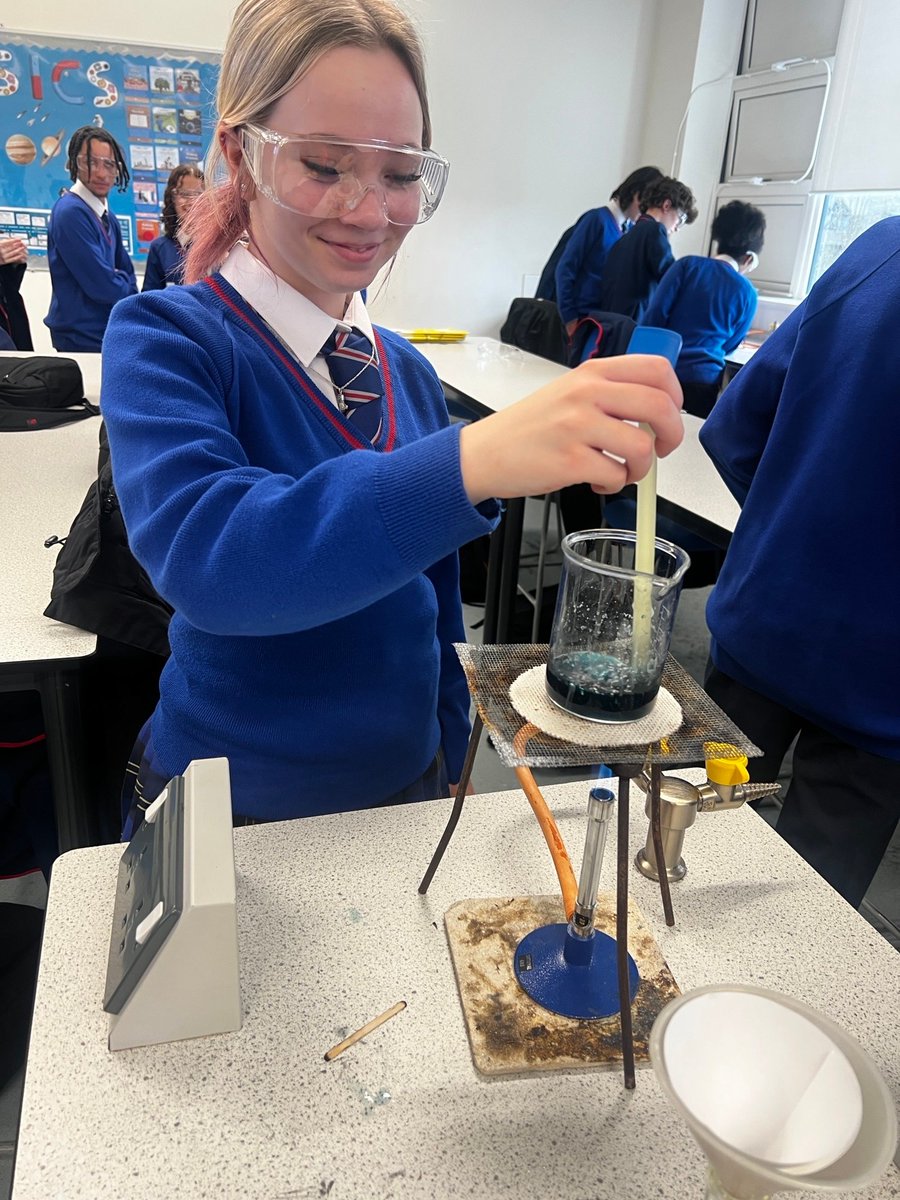Science
Curriculum intent
It is our belief that a broad and balanced Science education is the entitlement of every student regardless of ethnic origin, gender, class, aptitude or disability. The teaching of Science at HABE is based on the vision, values and aims of HABE, promoting reciprocity, resilience, resourcefulness and reflectiveness amongst all students.
The Science department will deliver a strong knowledge-based curriculum, providing opportunity for students to discover the excitement of the sciences and the phenomena surrounding the subject; it will aim to instil a desire for practical discovery, while fostering the inquisitive nature of students.
For further details of the Science curriculum please see the documents at the bottom of the page or contact Ms. Y. Roper.
A strong focus will also be placed upon literacy within science. There is robust evidence that poor literacy skills result in low attainment in the subject. This potentially limits the number of students pursuing a scientific career after they leave school. Teachers will be aware of the vocabulary demands of a topic and will make a conscious choice to focus on the words that students most need to understand. New scientific vocabulary will be taught explicitly and by using direct instruction and modelling, students will quickly gain insight into how these words are to linked to other aspects of science.
The department will also strive to provide a current foundation in the elements of scientific method, theory, applicability and laboratory practice that will encourage and inspire students to acquire an in-depth appreciation of the scientific endeavour. Students undertake experiments or view demonstrations where possible which, in addition to developing their practical skills, will also develop their ability to of hypothesise, predict, analyse, interpret and evaluate.
To fulfil this aim, the Science staff will provide a safe environment in which students’ views and personal aims are valued. Staff will encourage students to actively participate in their well-planned and highly differentiated lessons; where students of all abilities are given an appropriate level of challenge. Through the careful formulation of the lesson objective, progress should be judged periodically throughout the lesson, week, term and year, followed by feedback provided, thus allowing students to become very aware of their own progress and areas which they can work on to improve. Through a practically based course, skilled, deep and lifelong learning can be achieved, as students are prepared for the world of work and further study in the Sciences.
Implementation
Harris Academy Beckenham will follow the science curriculum as set out by the Harris Federation. This gives the benefit of being able to collaborate with other academies in the federation and undertaking standardised assessments. Year 11 mock exams will utilise AQA secure assessment materials in both Autumn and Spring.
- In early years, pupils follow a rota of 2/3-week units that cover the national curriculum with most units including at least one required practical (which like GCSE and A Level, are assessed in the assessments)
- In later years, rotas are produced on the assumption of specialist teaching of 4 80-minute lessons per week – 1 each for Biology, Chemistry and Physics with the fourth session allowing for targeted intervention to meet the needs of the students
- Targeted intervention will also take place for all year groups to fill gaps in student knowledge and improve attainment in students who are underperforming
- Teachers will also use assessment data in the form of ‘profiles of need’ which will allow them to target underperforming students in lessons
- In later years for more specialised content (some of which is quite niche in nature), a fuller set of resources are made available as a starting point for teachers which would commonly include (but are not limited to):
- A PowerPoint presentation with objectives, key visuals and activities
- Pupil worksheets
- Any relevant practical activities
- Suggested homework activities
- Health and safety information relevant to all activities
- All centrally provided resources are intended for teachers to adapt to the needs and interests of their own individual classes
Impact
Pupils sit two assessments annually which are cumulative in nature. These are written by the Science consultant team, who have had past training and guidance from AQA in terms of appropriate levels of challenge. We have developed a common set of rules for the assessments to ensure that there is a consistent level of demand, mathematical skills and scientific skills included in each exam. The assessment model, and indeed the curriculum, are cumulative in their structure and so pupils are expected to know and apply more of their scientific understanding and skills in each assessment.
The constituent parts of the assessments involve:
- The appropriate percentages of low, standard and high level demand questions
- Approximately 25% of marks devoted to scientific skills / required practical activities
- Approximately 20% of marks devoted to mathematical skills in the ratio of 10%:20%:30% for Biology, Chemistry and Physics
- Assessments will assess subject knowledge AO1, application of subject knowledge AO2, and ability to analyse information AO3. Pupils will also be assessed on practical skills developed through the required practicals.
For every assessment, academies are requested to fill in a question level analysis tracker. This automatically generates statements of strength and targeted questions for development for each pupil which can then be placed in books as marking stickers. The consultant team will then collate the data to generate average scores per question for over 20 of the secondary academies within the multi academy trust. This gives us approximately 3000 pieces of individual data so we can identify common areas of weakness and prioritise aspects of the curriculum for improvement. As an academy, we can then identify our areas of relative strength and weakness compared to the federation average scores to help identify priority areas of knowledge and skills on which to deliver intervention sessions.






















